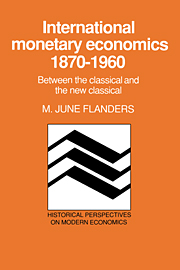Summary
This book has been simmering on a back burner in my mind for some time. I brought it to a boil and clarified it when I was able to go away on leave; here, after the second sabbatical, is the result.
I feel like the man in Aesop's Fable with the son and the donkey. Everybody he met on the road had a conflicting view of the proper allocation of labor between the three. In his good-natured attempts to listen to all advice, he lost his donkey and all his earthly goods. I have heard much excellent advice. Following it all was by definition impossible, since many admonitions were mutually incompatible. I listened seriously to all who ventured an opinion; to those whose advice I did not, or could not, in spite of all, follow – apologies.
My greatest intellectual debt is to Lloyd Metzler. My deepest regret is that I was forced to leave the city and the University of Chicago before partaking more of the stimulation that emanated from his gentle wisdom, low-key but brilliant. On a broader scale, I have benefited from contacts over many countries and continents – and many decades. Specific help, comments, and advice in the writing of this book has likewise come from a number of sources.
The heroes, who must not remain unsung, are the two friends who heroically struggled through all of an early and very rough draft. They are Arthur Bloomfield and John Whitaker.
- Type
- Chapter
- Information
- International Monetary Economics, 1870–1960Between the Classical and the New Classical, pp. xi - xiiPublisher: Cambridge University PressPrint publication year: 1990

